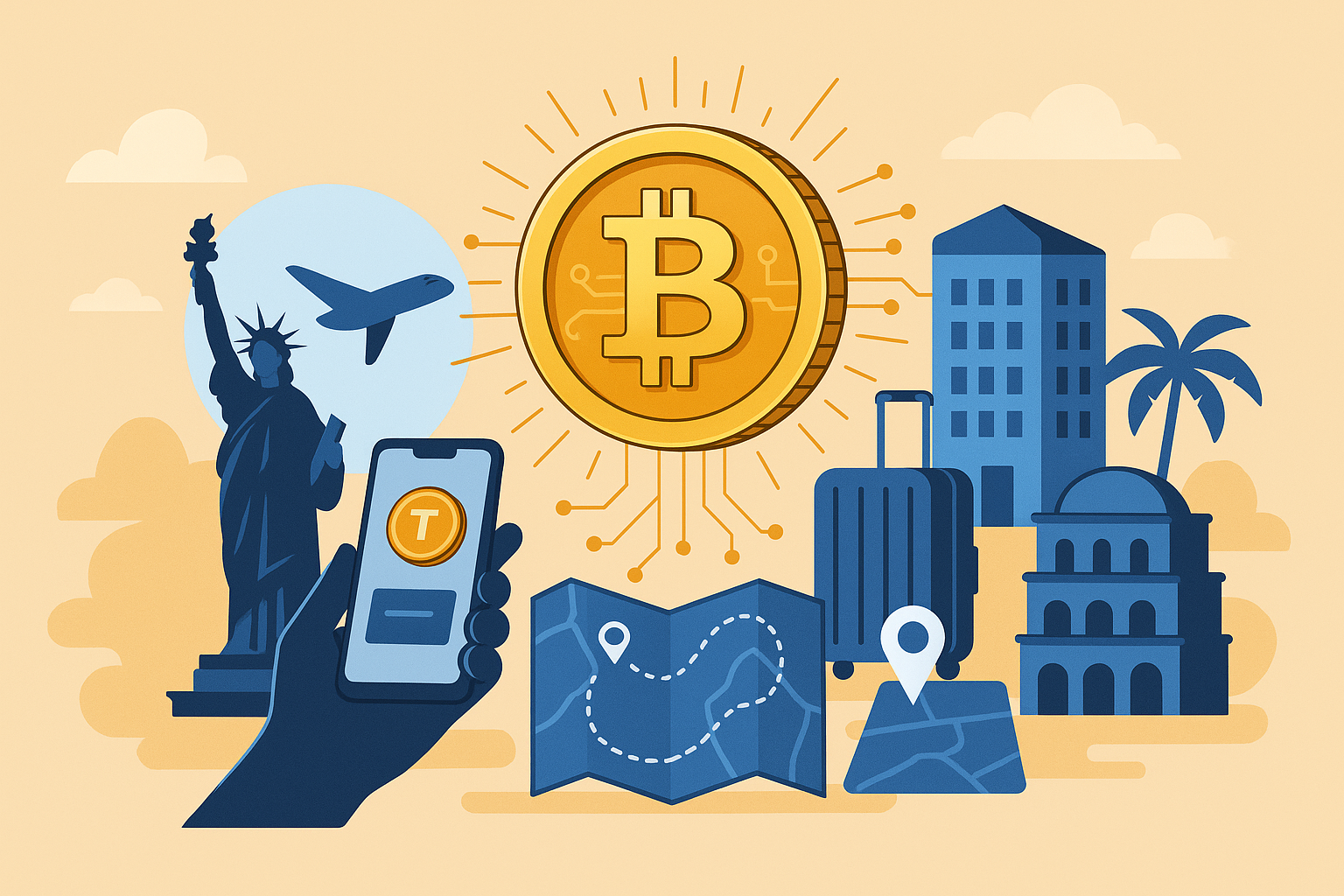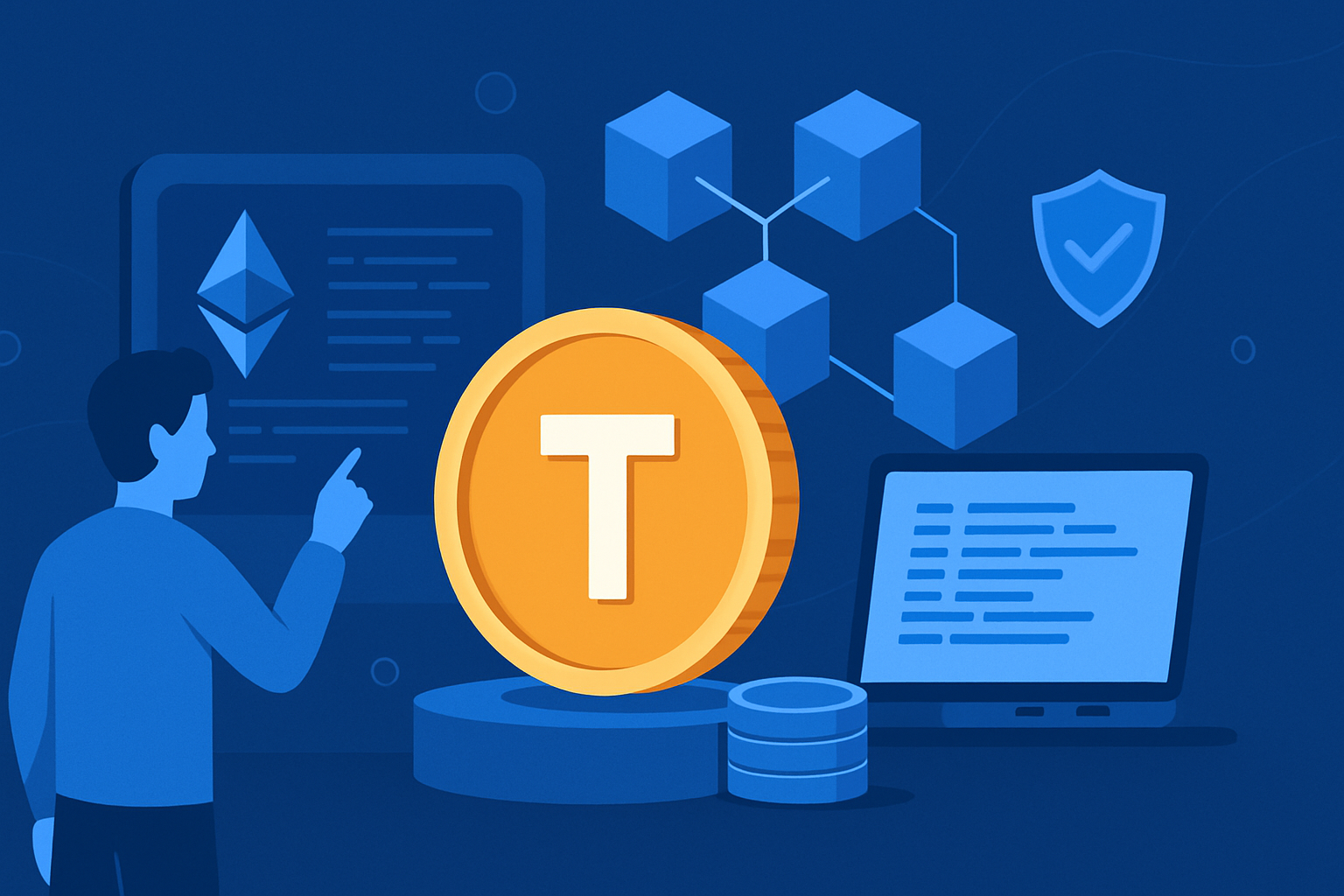
The travel and tourism industry is undergoing a significant transformation, driven by technological innovation and shifting consumer expectations. Among these innovations, blockchain and cryptocurrencies are rapidly gaining attention for their potential to redefine how transactions, rewards, and trust are managed in a globalized tourism landscape. Traditional systems are increasingly strained by inefficiencies, high fees, and fragmented loyalty programs. Enter industry-specific cryptocurrencies—a tailored solution designed to meet the exact needs of travel businesses, streamline operations, and enhance user experiences across borders.
Understanding Industry-Specific Cryptocurrencies
Unlike generic cryptocurrencies like Bitcoin or Ethereum, industry-specific cryptocurrencies are custom-built tokens designed to serve particular sectors. In the travel and tourism space, these digital currencies can power everything from booking platforms and loyalty rewards to cross-border transactions and travel insurance. The goal is to create a unified, blockchain-based infrastructure where all stakeholders—travel agencies, hotels, airlines, service providers, and tourists—can interact more efficiently and securely.
Such cryptocurrencies are developed on programmable blockchains that support smart contracts, ensuring transparency and automating functions like refunds, verification, or ticketing. By aligning token utility with the core business model of travel enterprises, these solutions offer a more cohesive and integrated experience for users and service providers alike.
Why the Travel and Tourism Industry Needs Custom Crypto Solutions
The travel industry is one of the most internationally oriented sectors, involving numerous currencies, regulations, and intermediaries. These complexities often result in inflated costs, delays, and a lack of trust among consumers. Cryptocurrency development addresses these pain points in several crucial ways.
First, it facilitates borderless payments with minimal fees, bypassing the inefficiencies of traditional banking and foreign exchange systems. Second, it provides a transparent, decentralized ledger that builds trust between unfamiliar parties—a key factor in peer-to-peer travel services like vacation rentals or ride-sharing in foreign countries. Lastly, industry-specific tokens can be embedded with features that cater specifically to travel needs, such as booking guarantees, identity verification, or even access control for events and attractions.
Key Applications of Travel-Specific Cryptocurrencies
A well-developed travel-focused cryptocurrency can serve multiple purposes within a single ecosystem. One primary use case is in booking platforms. Instead of relying on credit cards and third-party processors, users can book hotels, flights, or excursions using the platform’s native token, which can offer faster settlement times and lower fees.
Loyalty programs are another critical application. Traditional loyalty schemes often expire, are non-transferable, or limited to one brand. A blockchain-based system allows for tokenized rewards that can be used across partner services, traded, or even redeemed for fiat or NFTs. This fluidity adds significant value for travelers and encourages more frequent engagement with the platform.
In addition, travel-specific cryptocurrencies can simplify insurance processes. With smart contracts, users can purchase travel insurance policies that automatically trigger payouts in the event of delays, cancellations, or lost baggage—without the need for paperwork or lengthy claims processing.
Blockchain Infrastructure and Smart Contracts in Travel Platforms
Smart contracts form the backbone of industry-specific cryptocurrencies. These self-executing contracts run on blockchain networks like Ethereum, Binance Smart Chain, or Solana and are programmed to carry out specific actions when predetermined conditions are met.
In the context of tourism, smart contracts can handle everything from booking confirmations to cancellation policies. For example, a hotel reservation could be managed via a smart contract that locks in the user’s payment and automatically releases it to the provider upon successful check-in. If a traveler cancels within a refundable window, the contract could return the funds without manual intervention.
This automation enhances efficiency, reduces disputes, and ensures that all parties in the transaction follow the agreed-upon rules. Moreover, blockchain’s immutable ledger ensures that all interactions are recorded and verifiable, adding a layer of accountability and transparency.
Enhancing Cross-Border Payments and Currency Exchange
One of the most compelling reasons to build a travel-specific cryptocurrency is the elimination of friction in international payments. Travelers often face high foreign exchange fees, inconsistent conversion rates, and delayed transactions when using traditional banking systems abroad.
With a custom digital token, payments can be made instantly across borders, settled on-chain, and executed at negligible transaction costs. Travelers no longer need to worry about converting local currencies or carrying cash. Meanwhile, businesses benefit from quicker cash flows, reduced overheads, and access to a more global customer base.
Additionally, blockchain oracles can be integrated to provide real-time exchange rate data, ensuring fair conversions when tokens need to be swapped with local fiat currencies. This level of flexibility can greatly improve user confidence and adoption.
Real-Time Identity Verification and Fraud Prevention
In an industry where fraud, fake bookings, and identity theft are major concerns, blockchain offers significant security improvements. When tied to a decentralized identity (DID) system, a travel-specific cryptocurrency can be used not only for payments but also for verifying the identities of users and service providers.
Travelers can create secure profiles that store personal identification, travel documents, and biometric data on-chain—accessible only through their private keys. This eliminates the need to repeatedly enter sensitive information on different platforms and enhances protection against data breaches.
Moreover, businesses such as airlines or hotels can authenticate bookings or customer identities instantly through blockchain verification, reducing the chances of fraud and improving the overall customer experience.
Integrating Travel Tokens with IoT and Smart Tourism Infrastructure
The travel industry is gradually embracing smart tourism concepts—leveraging IoT (Internet of Things) devices to enhance traveler convenience and safety. From automated check-ins at hotels to smart luggage tracking, the synergy between blockchain and IoT is unlocking new possibilities.
Cryptocurrencies can function as digital keys, access tokens, or micropayment mechanisms in these environments. For instance, a traveler could use their tokens to unlock a hotel room door, pay for in-flight entertainment, or rent a smart bike in a tourist-friendly city—all through a single wallet.
This seamless integration creates a unified travel experience that removes friction and allows for more personalized, tech-driven tourism services.
Challenges and Considerations in Cryptocurrency Development for Travel
Despite the promising applications, there are technical and regulatory challenges to consider. Building a secure, scalable cryptocurrency requires selecting the right blockchain platform, coding robust smart contracts, and conducting audits to prevent vulnerabilities.
On the legal side, varying crypto regulations across countries can impact token usability. A token that is valid in Europe may face restrictions in certain Asian or Middle Eastern markets. Therefore, developers must work closely with legal experts to ensure compliance and devise region-specific rollout strategies.
Additionally, user adoption hinges on convenience and education. Travel businesses must provide easy-to-use wallets, interfaces, and educational resources to onboard non-technical users who may be unfamiliar with blockchain technology.
Case Studies: Pioneering Crypto Projects in Travel
Several projects have already laid the groundwork for travel-specific cryptocurrencies. Companies which uses its native AVA token, have successfully integrated blockchain for hotel bookings, flight reservations, and loyalty programs. Similarly, LockTrip and Winding Tree are developing decentralized platforms to reduce the role of middlemen and increase cost efficiency.
These pioneers demonstrate the viability and demand for blockchain solutions tailored to tourism. Their growth also provides valuable insights for new entrants looking to build their own token ecosystems.
Future Outlook: Building the Travel Ecosystem of Tomorrow
The future of travel lies in decentralization, personalization, and automation—all of which can be empowered by industry-specific cryptocurrency development. As blockchain infrastructure matures and consumer familiarity with digital assets increases, travel platforms that leverage crypto will stand out in terms of efficiency, trust, and global reach.
In the coming years, we can expect a surge in collaborations between blockchain developers and travel enterprises, leading to the creation of full-fledged ecosystems where tokens aren’t just a means of payment, but a passport to a smarter, safer, and more connected journey.
Conclusion: The Strategic Advantage of Travel-Focused Cryptocurrency Development
Building industry-specific cryptocurrencies for the travel and tourism sector is more than a technological experiment—it’s a strategic imperative for businesses looking to thrive in a global, digitally-driven economy. By solving long-standing issues such as payment inefficiencies, loyalty fragmentation, and identity verification, crypto solutions offer a compelling edge.
For travel companies, investing in cryptocurrency development can lead to higher user engagement, cost savings, and brand differentiation. For travelers, it means faster bookings, more control over their data, and seamless experiences across borders.










Write a comment ...